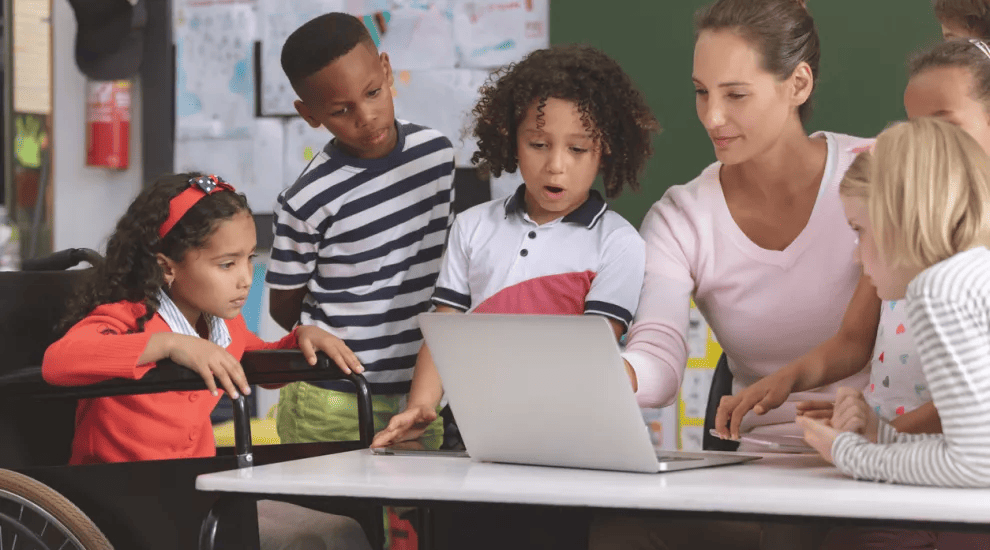Empowering Through Media Literacy Education: The Role of Online Courses
Introduction to Media Literacy Education
Media literacy education has become increasingly vital in today’s digital age, where media consumption is ubiquitous and diverse. It encompasses the ability to access, analyze, evaluate, and create media in various forms, from traditional to digital platforms. The goal is to empower individuals with critical thinking skills and knowledge necessary to navigate media messages effectively, discern fact from fiction, and become informed and active participants in society.
The Importance of Media Literacy
In a world where information is readily accessible and rapidly disseminated, media literacy equips individuals with essential skills to:
- Critical Analysis: Evaluate media content critically, considering credibility, bias, and purpose. This skill is crucial for making informed decisions and forming opinions based on reliable information.
- Digital Citizenship: Understand the rights and responsibilities of consuming and producing media in digital spaces. Media literacy fosters ethical behavior online, including respect for intellectual property and privacy rights.
- Media Production: Develop skills to create media content responsibly, effectively communicating messages and ideas to diverse audiences.
- Democracy and Civic Engagement: Engage actively in democratic processes by accessing diverse sources of information, participating in public discourse, and advocating for social change.
Online Media Literacy Courses
Media literacy course online offer accessible and flexible learning opportunities for individuals of all ages and backgrounds. These courses cover a range of topics designed to enhance digital literacy and critical thinking skills:
- Foundations of Media Literacy: Introduction to key concepts, theories, and principles of media literacy. Participants learn about media types, media influence, and the role of media in shaping public opinion.
- Critical Thinking and Analysis: Techniques for analyzing media messages critically, identifying misinformation, propaganda, and bias. Participants develop skills to evaluate sources, detect manipulation tactics, and verify information.
- Digital Literacy and Online Safety: Strategies for navigating digital environments safely and responsibly. Topics include cybersecurity, privacy protection, digital footprints, and ethical considerations in online communication.
- Media Production and Communication: Hands-on skills in creating and sharing media content effectively. Participants learn about digital storytelling, multimedia production tools, and ethical guidelines for content creation.
- Social and Ethical Issues in Media: Exploration of ethical dilemmas, cultural representation, diversity in media content, and media’s impact on society. Discussions examine issues such as media bias, stereotyping, and the influence of algorithms on content consumption.
Benefits of Online Media Literacy Courses
– Accessibility: Online courses provide flexibility for learners to study at their own pace and convenience, accommodating diverse schedules and learning preferences.
– Global Reach: Participants from around the world can access high-quality education and resources, fostering global perspectives and cross-cultural understanding.
– Skill Development: Enhances critical thinking, digital literacy, and communication skills essential for academic, professional, and personal success in the digital age.
– Empowerment: Equips individuals with the knowledge and confidence to navigate media landscapes effectively, challenge misinformation, and advocate for media literacy in their communities.
Implementing Effective Online Media Literacy Courses
To ensure effectiveness, online media literacy courses incorporate:
– Interactive Learning: Engaging multimedia content, case studies, quizzes, and discussions to reinforce learning and application of concepts.
– Expert Guidance: Instruction from experienced educators and industry professionals with expertise in media studies, digital literacy, and communication.
– Collaborative Projects: Opportunities for collaborative projects and peer feedback to enhance learning through practical application and teamwork.
– Continuous Evaluation: Assessments and feedback mechanisms to monitor progress, evaluate comprehension, and adapt course content based on learner needs and feedback.
Challenges and Considerations
– Digital Divide: Addressing disparities in internet access and digital literacy skills among diverse populations to ensure equitable access to online education.
– Misinformation: Teaching strategies to combat misinformation and enhance media literacy skills amidst the proliferation of false information online.
– Technological Integration: Ensuring compatibility with various devices and platforms to optimize accessibility and user experience for all learners.
Future Directions and Recommendations
Looking ahead, advancing online media literacy education involves:
– Policy Support: Advocating for integration of media literacy into formal education curricula and educational policies at local, national, and international levels.
– Research and Innovation: Conducting research on effective pedagogical approaches, technologies, and assessment methods in online media literacy education.
– Community Engagement: Collaborating with educators, policymakers, media professionals, and civil society organizations to promote media literacy initiatives and awareness campaigns.
Conclusion
In conclusion, online media literacy courses play a crucial role in equipping individuals with critical thinking skills and digital literacy competencies necessary to navigate and thrive in today’s media-rich environment. By fostering informed media consumption, ethical media production, and active civic engagement, these courses empower learners to become discerning consumers and responsible creators of media content. As society continues to evolve digitally, investing in media literacy education becomes imperative to promote a more informed, engaged, and resilient global community.
